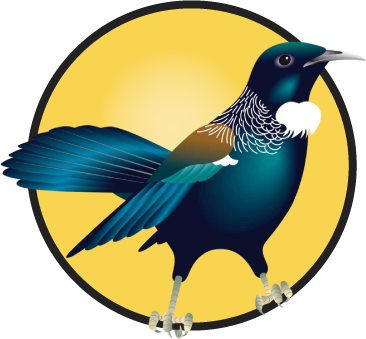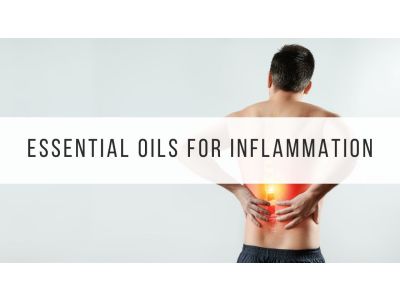Ever get that sense of dread in early Autumn when you know that cold and flu viruses are suddenly everywhere? When the weather turns colder and coughs and colds are doing the rounds, it’s common for us to wonder how we can boost our immune system to keep us fighting fit throughout winter.
A healthy and balanced diet, frequent exercise, and reducing alcohol and tobacco consumption remain some of the best ways of keeping fit and healthy. But can you boost your immune system by more relaxing methods? Can you boost your immune system by getting a massage? Let’s explore what the research says.
When thinking about how massage positively affects the immune system, your first assumption may be that it would achieve this purely through stress reduction. After all, chronic stress is well-documented in negatively affecting our immune system by increasing the likelihood of developing disease and potentially exacerbating pre-existing conditions. This happens because stress creates the hormone cortisol. While short spikes in cortisol can actually boost your immune system by limiting inflammation, having too much cortisol in your blood for a prolonged period of time can contribute to sustained inflammation, and can suppress your immune system’s ability to fight off infections. Massage can be a deeply relaxing experience, and research shows that massage reduces stress levels by decreasing cortisol levels. This is one example of how massage may affect the immune system.
But are there any direct physiological immune responses to massage?
Firstly, let’s consider what happens within the body during a massage. When we receive a massage, nerves in the skin get stimulated. Some of these nerves are connected to glands where T lymphocytes (also known as T-Cells) are stored. T lymphocytes are a type of white blood cell that help the body fight infection and disease. It’s believed that when these nerves in the skin are stimulated through massage, the glands release T lymphocytes into the blood.
Research into the effects of massage on people living with HIV showed that massage increased the number of white blood cells in HIV patients. This is significant because HIV is a disease that causes a reduction in T lymphocytes, which are an important part of our immune system.
The research into the effects of massage on HIV patients is promising. But can the same effect be seen in people without serious immune conditions? A study in 2010 aimed to determine this, and is believed to be the first systematic study of the health benefits of massage on a larger group of healthy adults.
In the study, 53 subjects received either a 45-minute Swedish massage or a 45-minute light touch massage by therapists trained in how to deliver both Swedish and light touch using specific and identical protocols.
Prior to the massage, each participant was asked to rest quietly for 30 minutes before having a blood sample collected. A 45-minute massage session was then carried out, after which further blood samples were collected.
The study’s results showed the following:
- People in the Swedish massage group experienced an increase in lymphocyte numbers and percentages. These white blood cells play a significant role in defending the body from disease.
- Swedish massage caused a large decrease in Arginine Vasopressin (AVP); a hormone believed to play a role in aggressive behaviour and linked to increases in the stress hormone cortisol.
- Swedish massage caused a decrease in levels of the stress hormone cortisol.
- Swedish massage caused a notable decrease in most cytokines produced by stimulated white blood cells. Cytokines are signaling proteins that help control inflammation in the body. They’re an important part of the immune system’s defense against bacteria and pathogens, but too many cytokines can lead to excess inflammation and conditions like autoimmune diseases.
The study concluded that ‘Preliminary data suggest that a single session of Swedish Massage Therapy produces measurable biologic effects.’
Other studies have replicated similar results. One small-scale experiment compared the number of T lymphocytes in people by taking blood samples during three stages: first at the beginning of the experiment (as a baseline reading), then after lying down and relaxing for an hour, and then finally after a 1-hour massage. The results showed a 70% increase in white blood cells following the massage, compared to the baseline results. The increase in white blood cells was higher after the massage than it was after simply lying down and relaxing.
While it’s not being suggested that massage can cure you of a specific illness, this exciting research indicates that massage not only feels good, but it may also do us good too. The immune system is complex, and simply increasing the white blood cell count in a person who already has a healthy number of white blood cells won’t necessarily improve their overall health. However, T lymphocytes do perform a wide array of important functions in the body’s growth and repair mechanisms. This could therefore partly explain why massage has been reported to help with so many conditions, including physiological conditions like pain, inflammation and injury, and psychological conditions like stress and anxiety.
With all this being said, considering receiving a massage can be such an enjoyable experience, what do we have to lose by giving it a go during the season of coughs and colds?
References:
Impact of a Massage Therapy Clinical Trial on Immune Status in Young Dominican Children Infected with HIV-1: https://www.liebertpub.com/doi/abs/10.1089/acm.2006.12.511
A Preliminary Study of the Effects of a Single Session of Swedish Massage on Hypothalamic–Pituitary–Adrenal and Immune Function in Normal Individuals: https://www.liebertpub.com/doi/10.1089/acm.2009.0634
Could massage boost your immune system? Small scale study: https://pure.roehampton.ac.uk/portal/en/clippings/could-massage-boost-your-immune-system






